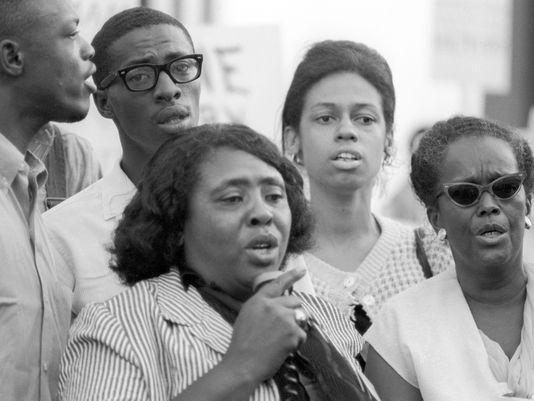
“Nobody’s free until everybody’s free.” —Fannie Lou Hamer
Black History Month provides us with an opportunity to pay tribute to Fannie Lou Hamer, a voting and civil rights activist who was instrumental in organizing Mississippi’s Freedom Summer for the Student Nonviolent Coordinating Committee (SNCC), and drawing national attention to the civil rights struggle in Mississippi at the 1964 Democratic National Convention.
Born to a family of sharecroppers in Mississippi in 1917, Fannie Lou Townsend started working in the cotton fields at the age of six. In 1944, she married Perry “Pap” Hamer, and the couple struggled to get by in rural Mississippi.
In 1962, her life changed when she decided to attend a protest meeting, where she met civil rights activists who were in Mississippi to register African Americans to vote. She became active in helping with the voter registration efforts, and became a SNCC field secretary in 1963. That same year, she attended a citizenship training school sponsored by the Southern Christian Leadership Conference in Charleston, South Carolina. On the bus trip back home, after stopping in Winona, Mississippi, Hamer was arrested with other activists after trying to be served at a cafe. She was brutally beaten in jail, and needed almost a month to recover from her near fatal injuries after her release.
In 1964, Hamer worked with the SNCC to organize the Freedom Summer voter registration drive in Mississippi. Later that year, Hamer and other civil rights activists established the Mississippi Freedom Democratic Party (MFDP) in order to fight for fair representation at the Democratic National Convention in Atlantic City, New Jersey. NAACP activist Aaron Henry headed the MFDP delegation, and Hamer served as vice chair.
At the convention, the MFDP lined up witnesses, including Dr. Martin Luther King, Jr., to testify before the convention’s credentials committee in order to gain seats at the convention. Hamer also testified and her testimony gained national attention. Hubert Humphrey, who would become the party’s candidate for Vice President, served as the liaison for President Johnson. Humphrey offered the MFDP delegates only two seats, and the delegates rejected the compromise.
That same year, Hamer ran for Congress in Mississippi, but she was unsuccessful in her bid. In 1968, the Democratic Party seated Hamer as a delegate at its convention in Chicago. Along with her political activism, Hamer helped the poor and families in need in Mississippi. She died of cancer in 1977.

